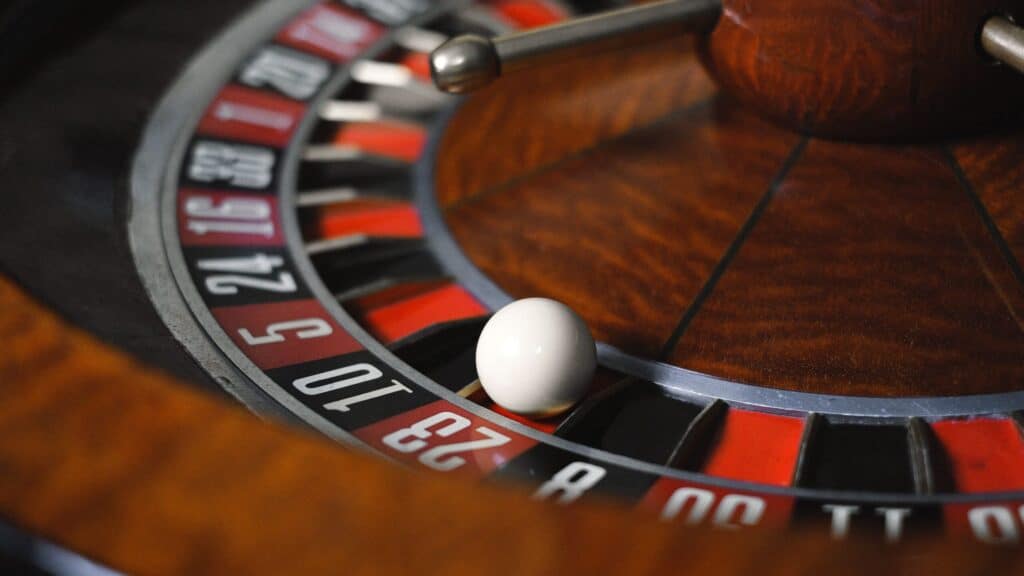Roulette is one of the most popular casino games in the world, captivating players with its exciting wheel spins and potential for big wins. However, with several different variations of roulette available, choosing the right game for you can seem overwhelming. Whether you're a beginner or an experienced player, understanding the differences between roulette variations is crucial to maximizing your enjoyment and potential success. In this guide, we’ll explore the different types of roulette, the strategies that work best for each variation, and how to choose the right one for your style of play.
Understanding the Basics of Roulette
Before diving into the various types of roulette, let’s first review the essential rules and structure of the game. Roulette is a game of chance where players place bets on where they think a ball will land on a spinning wheel. The wheel consists of numbered pockets, and the objective is to predict the number (or range of numbers) the ball will land in after it spins around the wheel.
The key elements of roulette are:
- The Wheel: Typically, roulette wheels have 37 or 38 numbered pockets. These include the numbers 1 to 36, and a single or double zero (depending on the variation). The numbers alternate between red and black, with the zero(s) being green.
- The Table: The betting table is where players place their chips. It displays the numbers on the wheel, as well as additional betting options, such as odd/even, red/black, or high/low.
- Bets: There are two main types of bets: inside bets (bets placed on specific numbers) and outside bets (bets placed on larger categories, such as red or black, or high or low numbers).
Now that you have an overview of how the game works, let’s take a look at the different variations of roulette to help you decide which one suits your preferences and playing style.
Types of Roulette Games
Roulette offers several variations, each with its own set of rules, odds, and nuances. The three most common types are European, American, and French roulette. Let's dive deeper into each type and its features.
European Roulette
European roulette is considered the most popular and favorable version for players, especially in online casinos. It features a wheel with 37 pockets—numbered 1 through 36, and a single green pocket for the zero. This is important because the house edge in European roulette is lower than in American roulette, giving players a slightly better chance of winning.
- House Edge: The house edge in European roulette is 2.7%, which is due to the single zero on the wheel.
- Best for: European roulette is ideal for beginners and those who prefer a lower house edge. The straightforward rules make it accessible for new players, while the better odds make it attractive for more experienced gamblers.
American Roulette
American roulette is very similar to European roulette but with one significant difference: the American wheel has an additional pocket, the double zero (00). This increases the total number of pockets to 38, making the game slightly more challenging and increasing the house edge.
- House Edge: The house edge in American roulette is 5.26%, which is higher due to the extra double zero pocket.
- Best for: American roulette is suited for players who enjoy a higher risk, as the additional pocket makes the game less favorable for the player. However, this also means that it can offer larger payouts on certain bets.
French Roulette
French roulette is essentially the same as European roulette, with a few key differences that make it more player-friendly. French roulette features the same wheel with 37 pockets, but it offers two additional rules that benefit the player:
- La Partage Rule: If the ball lands on zero, players who made even-money bets (such as red/black or odd/even) will get half of their bet back.
- En Prison Rule: If the ball lands on zero, players who made even-money bets can choose to leave their bet "in prison" for the next spin. This gives players a second chance to win without losing their entire bet.
- House Edge: French roulette offers the lowest house edge of the three variations, at 1.35%, due to the La Partage and En Prison rules.
- Best for: French roulette is ideal for players who want the best odds and prefer a strategic approach. The La Partage and En Prison rules give players an additional opportunity to minimize losses, making this version a favorite among serious gamblers.
How to Choose the Right Roulette Game
Now that you’re familiar with the different types of roulette, let’s dive into how you can choose the best version for your playing style. Each roulette variation offers unique benefits and challenges, so understanding your preferences and goals is key to making the right choice.
Consider Your Risk Tolerance
Your risk tolerance plays a significant role in determining the best roulette game for you. If you prefer a lower-risk game with better odds, European or French roulette is the ideal choice due to their lower house edges. On the other hand, if you enjoy higher stakes and the possibility of larger payouts, American roulette may be more suited to your style. However, be prepared for the increased house edge and the higher likelihood of losses over time.
Evaluate the House Edge
As mentioned earlier, the house edge varies across different roulette variations. If you're a strategic player who wants to minimize losses and maximize your chances of winning, you should always opt for games with the lowest house edge. This is why French roulette is often regarded as the best option due to its unique rules that reduce the house advantage. However, European roulette is also a solid choice, especially for beginners who are just starting to explore the world of roulette.
Understand the Betting Options
Roulette offers a wide range of betting options, from simple bets like red/black and odd/even to more complex wagers like split and street bets. The availability of these options can differ depending on the roulette variation you choose. If you’re a beginner, you may prefer European or French roulette as these games offer clear, straightforward betting options that are easier to grasp.
Determine the Payouts and Win Potential
Each roulette variation also differs in terms of payout structure, particularly when it comes to outside bets. For example, in American roulette, the payouts for certain bets may be higher due to the increased house edge, but the odds of winning are lower. Conversely, French and European roulette offer more favorable odds for players, meaning you have a better chance of winning, but the payouts for some bets may be lower.
Strategies for Maximizing Your Success
Once you’ve selected the right roulette game for you, it’s important to have a solid strategy in place. While roulette is primarily a game of chance, employing a well-thought-out strategy can improve your chances of success. Here are some popular strategies that players use in roulette:
1. The Martingale System
The Martingale strategy involves doubling your bet after every loss, with the goal of recouping your losses and making a profit once you eventually win. This system works best in even-money bets like red/black or odd/even. However, it’s important to note that this strategy can be risky, especially if you hit a long losing streak.
2. The Reverse Martingale System
The Reverse Martingale strategy is the opposite of the original Martingale system. Instead of increasing your bet after a loss, you increase it after a win. This approach is less risky but requires careful monitoring of your wins and losses.
3. The D’Alembert System
The D’Alembert system is a more conservative strategy that involves increasing your bet by one unit after a loss and decreasing it by one unit after a win. This strategy aims to balance wins and losses more gradually, minimizing the risk compared to the Martingale system.
Fun Facts About Roulette
- Roulette’s Name: The word “roulette” comes from the French word “little wheel,” reflecting the spinning wheel used in the game.
- Origin of the Double Zero: American roulette features the double zero (00) pocket to give the house an advantage. This variation was introduced in the 19th century to attract more gamblers and increase the casino's profits.
- Luck or Skill: While many players think of roulette as purely a game of luck, some strategies, like the ones mentioned above, can help you manage your bets and increase your chances of success.
Conclusion
Choosing the right roulette game for you ultimately depends on your risk tolerance, preferred betting options, and your desire to reduce the house edge. European and French roulette offer the best odds, making them the go-to options for most players. However, if you’re looking for a more exciting challenge and are willing to take on a higher house edge, American roulette may be the game for you. Regardless of the version you choose, remember to enjoy the thrill of the game and play responsibly.



